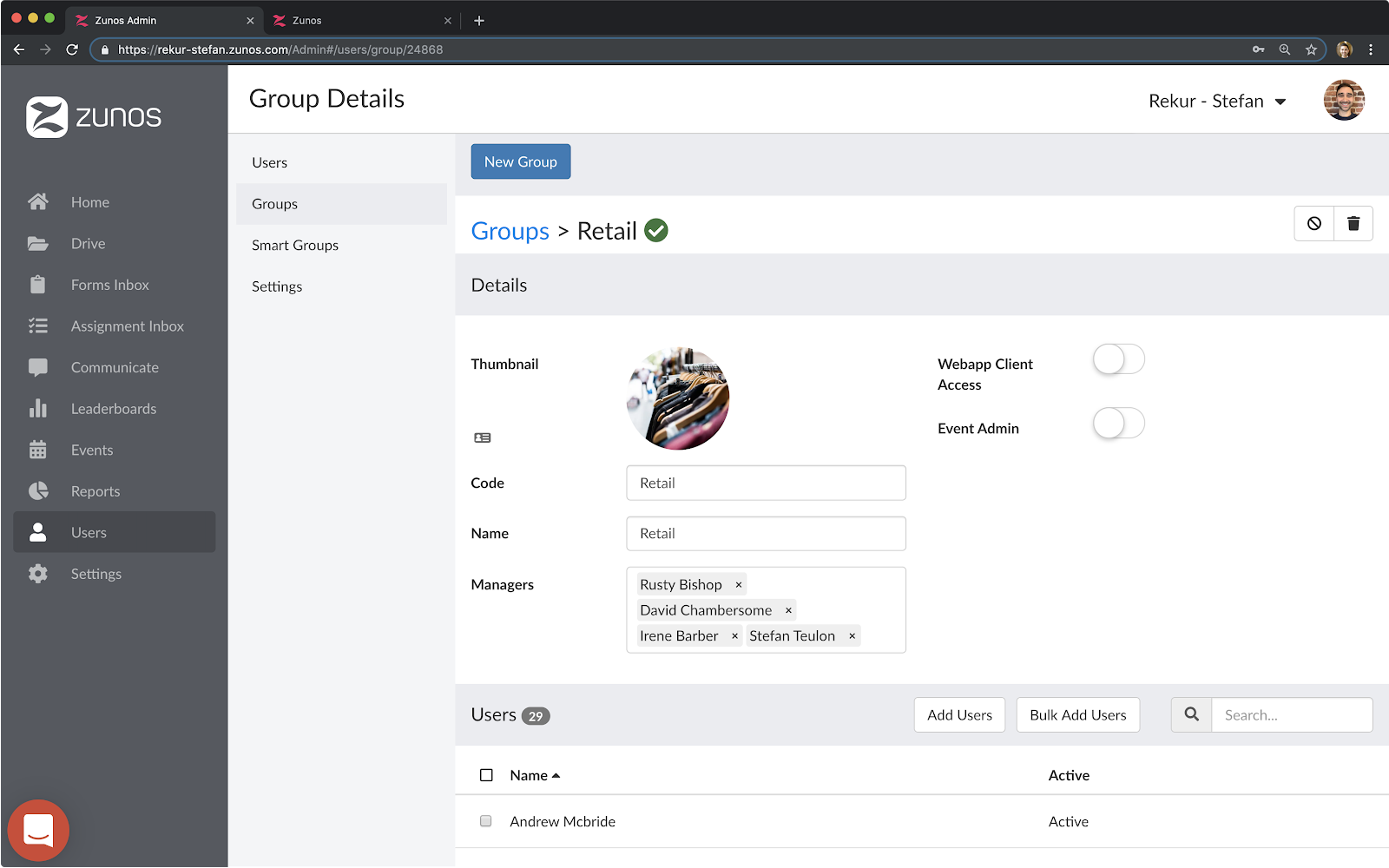Manager Dashboard is a widget that provides live performance data of a group’s users to the associated manager(s).
Summary, Data, and Assumptions
This widget called ‘Group Summary’, will aggregate all users Engagement Scores for that group. This allows the manager to drill down to either associated object data or a users’ performance across all their objects.
Only objects associated with the Engagement Score will be displayed to the manager.
How to Configure a Successful Manager Dashboard
- Plan groups/smart groups
- Configure dashboards
Plan your Groups
The group (G) or the smart group (SG) is the object that appears in the Manager Dashboard, the users within that G/SG formulate the data the Manager sees.
- S/SGs will need to be set up to map to the appropriate structure, and may not be the same as the publishing G/SGs already established.
- G/SGs have a field called ‘Managers’, adding a user to this field will show them that specific G/SG on the Manager Dashboard. The user does not have to be an Admin.
- Adding users to the Managers field can only be performed in the G/SG itself.
- Name is what the Manager will see in the app, the thumbnail is the icon that is shown for that G/SG.

Configure your Dashboard
Adding a new Page to an existing Dashboard
- Should be request BTC to enable Manager Layout on the back end of Support Portal
- Open your Dashboard in Drive
- Add a new Page of type ‘Manager Layout’
- Edit to your desired layout
- Typically the logo and the new group summary widget will suffice to start
- Add a ‘Group Summary’ widget
- nb All data is dynamic, it will appear blank in the dashboard editor
- Save (without Closing)
- Add a widget to a mixed content item on the master page linked to the new page
New Dashboard
- Create a new Dashboard from scratch, as a ‘Manager Layout’ type
- Link to that dashboard from any other Dashboard
- Assign that Dashboard to a specific group of users
Expected Result
The Group Summary widget will pull through the following information and present to the user:
- Group Name
- Group Thumbnail
- Show the objects related to the set up of ‘Engagement’
- ie Achievement, Course, Quiz etc
- All learning objects assigned to users of that group, that match the engagement definition ie: all Achievements
- Nb it is not restricted to only object assigned to that group. If a user is part of multiple groups all the objects assigned to that user will show to that manager
- This ensures that all the data for that user is available to the Manager
A Manager can navigate through the data, drilling down to a specific object or a user. In any case, the progress of a user through a specific object is the most granular the data can go.

Clicking on Engagement
Clicking on the % engagement will shortcut to the ‘Engagement’ summary screen (note the menu at the bottom left).
It will navigate to the group selected from the widget.
From here, the manager can navigate to the specific Object they’re interested in.
Typically this route is to answer questions When a manager would like to ensure a certain activity is completed

Clicking on the Users
The alternative to the Engagement shortcut, click on the user will navigate the manager to the Users tab.
This would be the preferred action When the manager wants to understand the engagement and activity completion of a specific user

Comments
0 comments